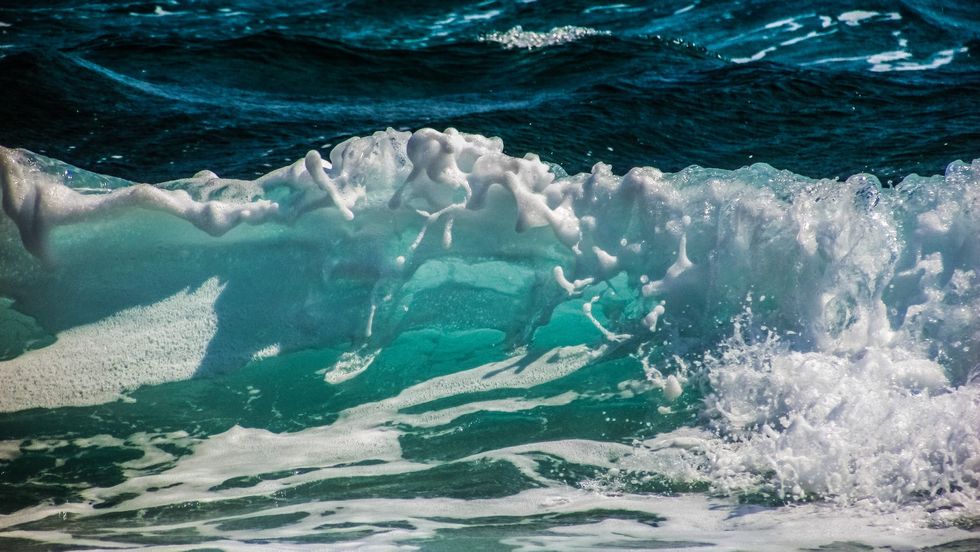With summer right around the corner, all I can think of is the beach. I don’t know about you but that’s where I want to be right now. I can practically close my eyes and hear the seagulls and the waves crashing. The cool water washing over my feet, leaving behind a six-pack ring. Human waste has had such a devastating effect on our oceans for so many years that most people have begun to treat the issue with more empathy than urgency.
In reality, keeping the ocean clean is important now more than ever.
Pollution is the most detrimental thing to our oceans and the life within them. Jacques Cousteau, famous French oceanographer and conservationist once said,“Water and air, the two essential fluids on which all life depends, have become global garbage cans.” He couldn’t have been more correct.
Plastic waste such as bottles, bags, and six-pack rings are among the biggest threats to marine life. At least 8 million tons of plastic enter the oceans each year. That's similar to emptying a garbage truck of plastic into an ocean every minute.
The Great Pacific Garbage Patch is a huge floating island of garbage made mostly of plastic and discarded fishing supplies. It is located between Hawaii and California.
When it was discovered, it was estimated to be the size of Texas. Today it is three times the size of France. This is so important because, unlike most trash, Plastic does not degrade. Instead, it breaks down into smaller and smaller pieces but never disappears.
Chemical waste is another major type of pollution. One way chemicals enter the ocean is through industrial waste factories are often empty out into rivers and oceans. A case of this was in Minimata Bay in Japan. Minimata Bay was home to a factory in the town was releasing “small amounts” of mercury waste into the nearby river. As time went on the people of Minimata Bay contracted mercury poisoning because of the fish they consumed that were exposed to the initial mercury dump.
Pesticides and fertilizers used on land runoff into the sea when it rains or when people water their lawns. These chemicals also enter the food chain through the fish exposed to them because these chemicals aren’t biodegradable.
Though there is legislation made to prevent chemical pollution, it still happens mostly illegally. Plastic pollution and chemical pollution go hand in hand because of the fact that plastic debris can absorb toxic chemicals from ocean pollution, therefore poisoning whatever eats it.
The types of pollution have a devastating effect on marine life around the world. In 2016, news outlets everywhere reported that the coral in the Great Barrier Reef was dying. This was big news because so many people have an image of the coral reefs as being beautiful; colorful and full of life. Today, our coral reefs look nothing like that. Coral reef bleaching due to pollution and climate change has killed half of the Great Barrier Reef, which spans 1,400 miles.
Once again, plastic pollution also plays a part in this event. Plastic tears open coral skin, allowing the coral to be susceptible to infection. Chemical pollution exposes the coral to harmful toxins. Climate change causing the water’s temperature to rise and become more acidic is another huge factor in coral bleaching because of all these facts, scientists have predicted that by 2050, 90% of the earth’s coral will be dead.
The coral isn’t the only thing that’s dying.
Ocean pollution has caused many marine animals to become endangered. Over one million seabirds are killed by ocean pollution each year. Sea turtles, perhaps the most famous animals being killed by ocean pollution, are also endangered. Seabirds and Sea Turtles often eat the plastic pollution they encounter, mistaking it for their natural food sources. The plastic is not able to be digested, so it stays in their systems and accumulates until they die.
Three hundred thousand dolphins and porpoises die each year as a result of becoming entangled in discarded fishing nets, among other items and plastic trash. The vaquita, a species of porpoise native to Mexico, is endangered precisely because of this reason.
Poison water, dying coral, animals on the brink of extinction. These are sad dystopian events that have become realities because of human carelessness. Is there a solution? TUNE IN NEXT WEEK TO FIND OUT!








































